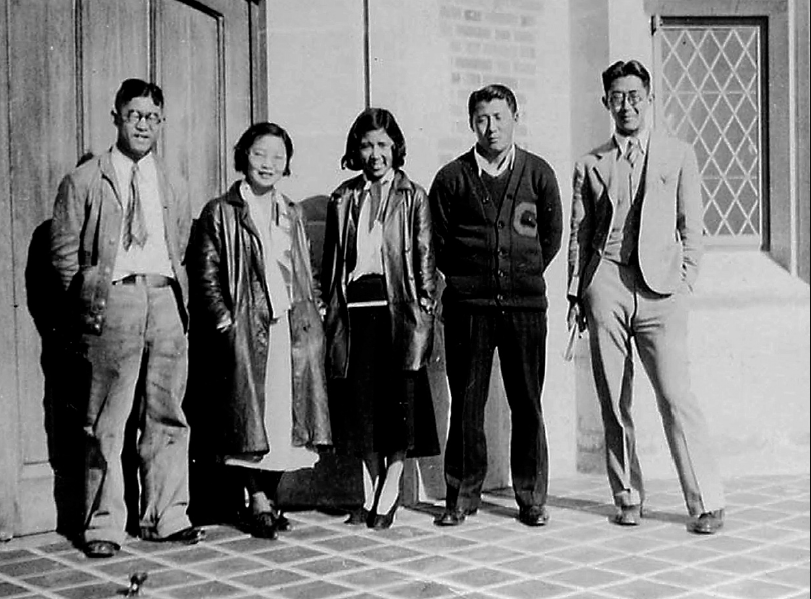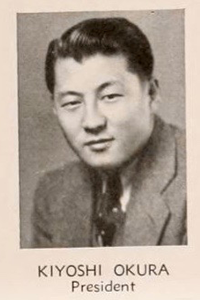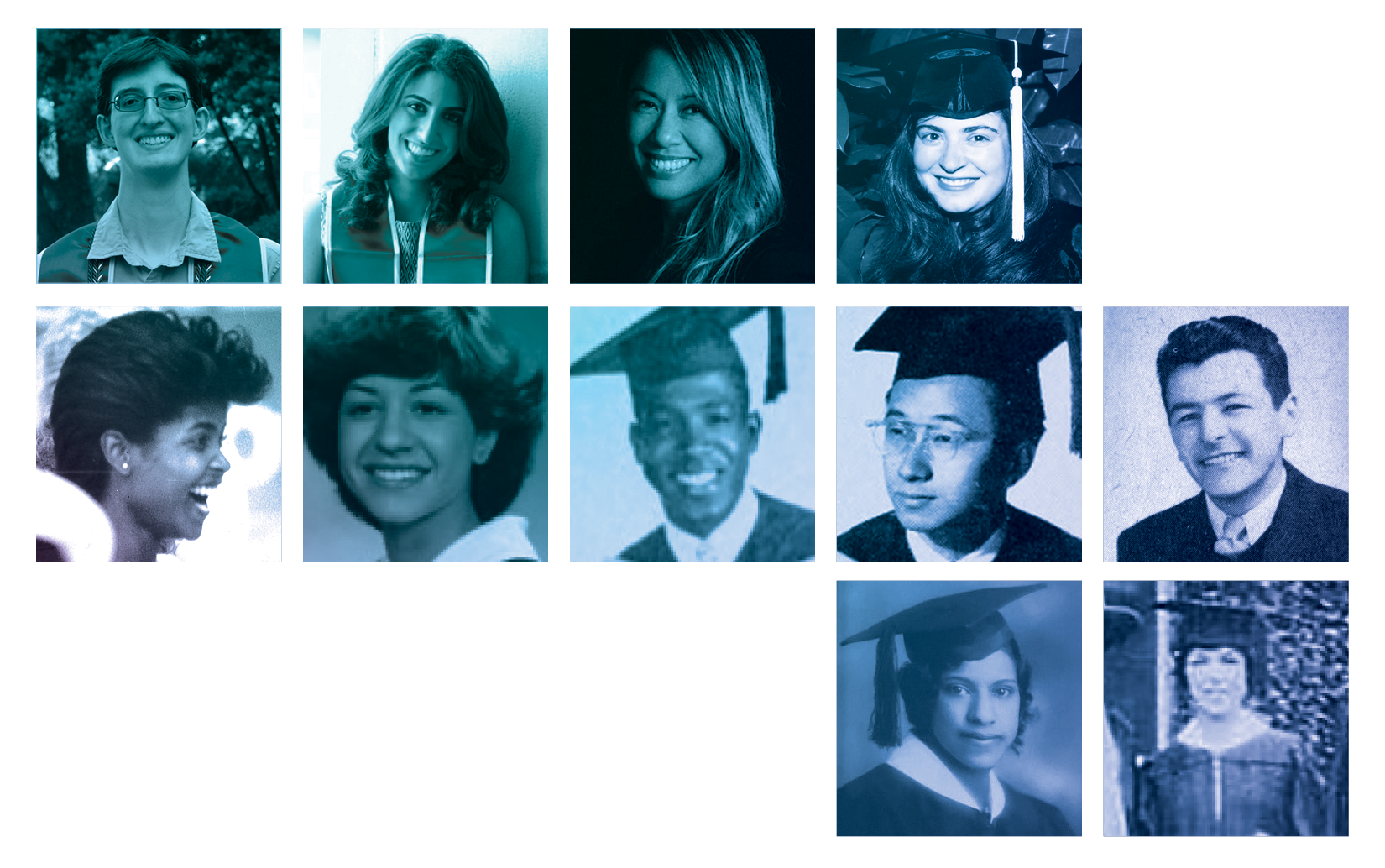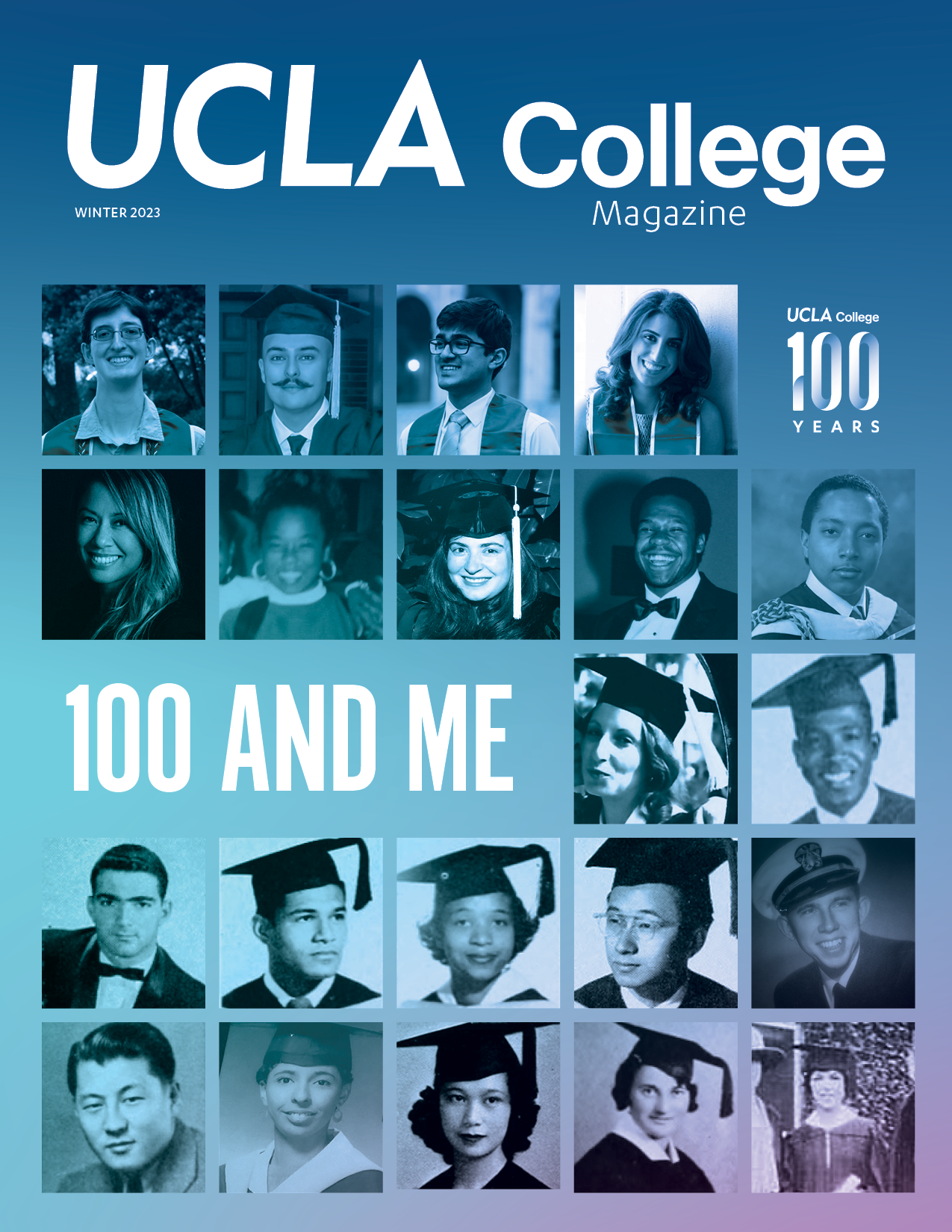With memories spanning decades, majors and interests, graduates of the UCLA College reflect on their time as students and their hopes for the College’s next 100 years. Read their stories below, and click here to share your own.

1930s
BLAZE TRAILS
“How one handles hardships makes you a better person. You accept it and make the best of it.”
Kiyoshi Patrick Okura ’33, M.A. ’35 | Psychology
Kiyoshi Patrick Okura was the first Japanese American student to play varsity baseball at UCLA, as well as a founding member of the Japanese American Bruins Club. After earning his master’s degree — becoming the first Asian American to receive such a master’s degree in psychology at UCLA — Okura was frustrated by the difficulty in finding suitable work.
He challenged the city of Los Angeles’ segregationist hiring practices and succeeded in becoming the first Japanese American to work for the Los Angeles Civil Service Commission. After the attack on Pearl Harbor, he was falsely accused of using his position to run a spy network and forced to resign, although charges were later dropped.
 In 1941, Okura was sent to the Santa Anita Park internment camp, where he and his wife, Lily, lived in an 8-by-8-foot tack room in a horse stable. He was able to leave internment when Rev. Edward Flanagan, founder of the nonprofit Boys Town, sponsored about 50 Japanese American families and brought them to Omaha, Nebraska. Okura became Boys Town’s staff psychologist and later worked for the National Institutes of Health, creating programs for minority communities.
In 1941, Okura was sent to the Santa Anita Park internment camp, where he and his wife, Lily, lived in an 8-by-8-foot tack room in a horse stable. He was able to leave internment when Rev. Edward Flanagan, founder of the nonprofit Boys Town, sponsored about 50 Japanese American families and brought them to Omaha, Nebraska. Okura became Boys Town’s staff psychologist and later worked for the National Institutes of Health, creating programs for minority communities.
Okura also became a leader of the Japanese American Citizens League, the oldest and largest Asian American civil rights organization in the U.S. He was honored by the JACL as a “Japanese American of the Biennium” in 1978, and by the emperor of Japan in 1999. In 1988, President Ronald Reagan signed the Civil Liberties Act, which offered a formal apology and financial compensation for surviving victims of incarceration during World War II. The Okuras used their reparation funds to cofound the Okura Mental Health Leadership Foundation, promoting leadership, research and training in human services. They also donated their papers to UCLA, a testament to lives of service.
In an interview with The Washington Post in 1990, the 79-year-old Okura spoke about the experience of receiving a federal redress for the crimes he suffered.
“Despite the injustices that may exist in our system of democracy, if you stick to it, if the cause is right, then you do have a chance of righting the wrong,” he told the paper, going on to say, “How one handles hardships makes you a better person. You accept it and make the best of it.”
Adapted from UCLA Alumni Connect with thanks to the UCLA Alumni Association.
Special thanks to the UCLA Alumni Association and UCLA Alumni Diversity Programs & Initiatives.
Visit them to further explore the UCLA College community.
![]()
Los Angeles, CA 90095



